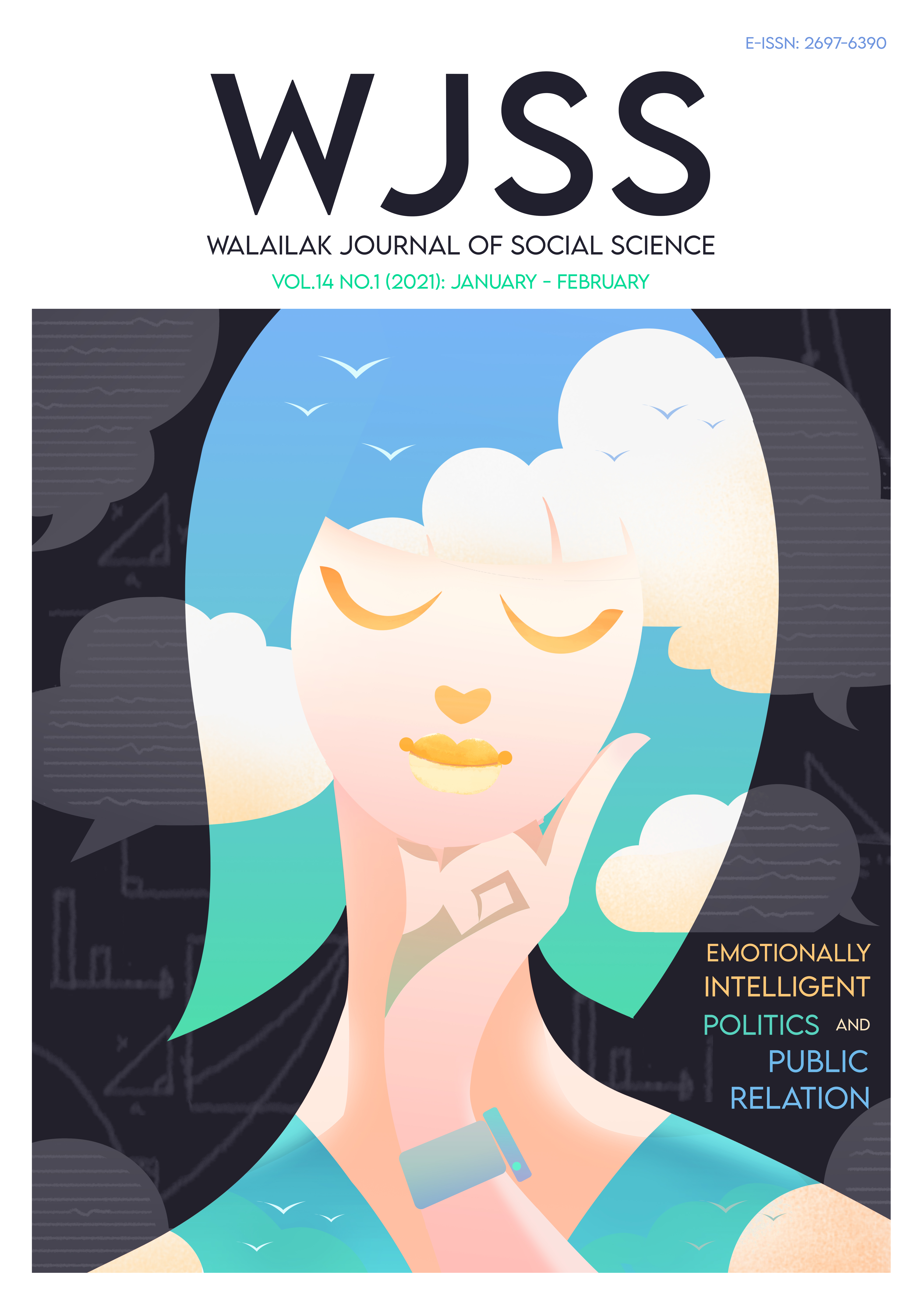The Learning Achievement and Satisfaction of the Second Year Communication Arts Students at Songkhla Rajabhat University in Using the Kahoot! Application for the Mass Media Ethics Course
Main Article Content
Abstract
The present research aims to 1) study students’ learning achievement before and after using the Kahoot! application in the Mass Media Ethics course, and 2) to find out students’ satisfaction towards using the Kahoot! application in the Mass Media Ethics course. Participants in this research study were 38 undergraduate students who studied in the Mass Media Ethics course. The instruments used to collect data were: 1) the achievement test after using the Kahoot! application, 2) the test to measure students’ knowledge and understanding towards the content, 3) an application evaluation form and a 5-rating scale questionnaire asking for the students’ satisfaction after using the Kahoot! application, and 4) a questionnaire asking for the experts’ satisfaction of the Kahoot! application evaluation form.
The findings are as follows:
- The students’ learning achievement after using Kahoot! in the Mass Media Ethics course was higher than before using Kahoot! (an increase from 58.77 to 66.93%).
- The students were satisfied with using Kahoot! in the Mass Media Ethics course with the mean score of 4.65 (X̄), which is at the highest level.
Most of the students suggested that the Kahoot! application should be frequently used in the class. It is also recommended that the instructor and students should cooperatively develop or choose the which applications to use for instructional purposes.
Article Details
Copyright: CC BY-NC-ND 4.0
References
Atchanakul, C. (2015). Communication arts research. Songkhla, Thailand: Songkhla Rajabhat University.
Chakornjirakiat, N. (2015). The use of game tester to compare satisfaction in computer programming basics exam between using Kahoot! and regular exam of year 2 diploma of business computer program students, Vanit Business Administration Technological College. Vanit Business Administration Technological College.
Diawkee, T. (2016). Morality and ethics of media for presenting news in digital era. Journal of Communication and Management NIDA, 2(2), 125.
Fuinlong, C. (2014). Attitude development through group activities for students in the COM 211 course, law and ethics of mass communication, Faculty of Communication Arts, Rangsit University. Bangkok, Thailand: Rangsit University.
Iwamoto, D. H., Hargis, J., Taitano, E. J., & Vuong, K. (2017). Analyzing the efficacy of the testing effect using Kahoot!™ on student performance. Turkish Online Journal of Distance Education-TOJDE, 18(2), 80-93.
Buangam, K. (2016). Kahoot application for learning to fun. Thailand: Thammasat University Library.
Klinlekha, P. (2017). The effect of social media on students at Hatyai University. In Proceeding of the 9th Hatyai National and International Conference (p. 257). Songkhla, Thailand.
Onthaisong, C., Prommsuan, W., & Wasukanjanawech, S. (2018). The Effect of Kahoot learning media on achievement of reviewing test in Gerontological nursing subject. Surin, Thailand: Boromarajonani College of Nursing Surin.
Siritanadeepun, S. (2017). Result of using activity with Kahoot learning application for improving makin sentences in Pratomsuksa 1 students of Demonstration School of Suan Sunandha Rajabhat University. Bangkok, Thailand: Suan Sunandha Rajabhat University.


